THE SIGNAL. Intriguing, oldschool science fiction
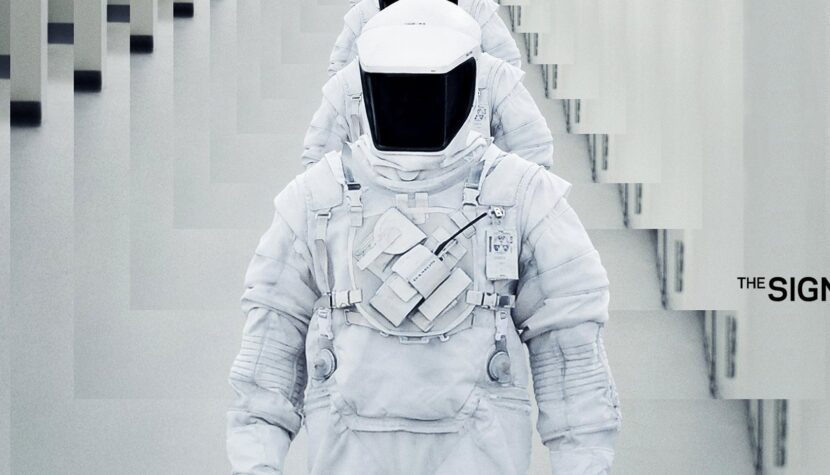
This is his second feature film, still – not entirely successful, but the issues raised in it and the impressive technical scope achieved with limited financial resources inspire confidence that this creator will soon be one of the visionaries of science fiction cinema. However, it doesn’t seem likely (unless practice makes perfect) that he will become an equally great screenwriter.
In The Signal two students from a technological university fall into a trap set by a mysterious hacker. Unable to resist the temptation to discover his identity or even envision a face-to-face meeting with their nemesis, they decide to go to the location he specified. This place turns out to be an abandoned shack somewhere in the middle of the American wilderness. The main character, whom we will accompany throughout the story, Nic, moves on crutches due to an illness, and his friend – Jonah – is more of an outsider. They are accompanied by Nic’s girlfriend. When they arrive, strange phenomena begin to occur. The characters lose consciousness, the screen blacks out, and the viewer is drawn into a series of even stranger events. There are many blind alleys here – some are attractive, while others unfortunately reveal Eubank’s shortcomings as a screenwriter.
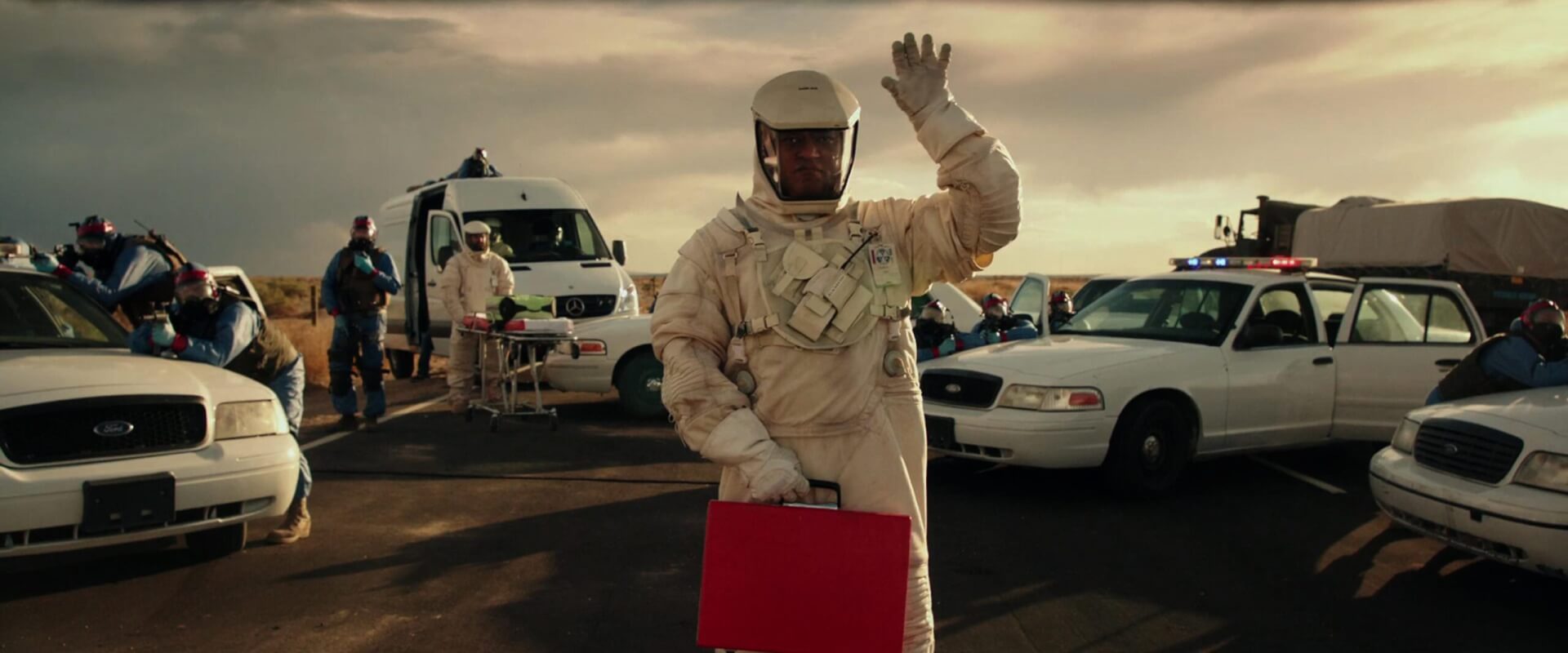
So the script is the weakest element overall. It’s said that if the script is weak, the whole film lies flat, and I won’t dispute this thesis. However, The Signal is not a narrative nightmare – it simply lacks a lot to be solid. The story has its twists and leads through both interesting and contrived, dragged-out scenes. It heads towards a finale that is not surprising but also doesn’t leave a particular sense of dissatisfaction. Essentially, we get what we expect – and that’s fine. Not much good can be said about the characters either. Poorly drawn characters, a barely visible bond between them, and somewhat dreamy acting from the trio don’t help in savoring the story. However, it’s not all bad – everyone has their weaknesses they try to overcome, which allows us to look at them more favorably. Overcoming weaknesses is, in fact, one of the film’s themes. However, there’s something that sustains this story – a superbly captured sense of alienation and unreality. From the beginning, we can guess what the basis of everything happening to the characters is, yet these strange clues, confusing facts, and mismatched elements strongly affect the imagination. If only there were a bit more conflict, a bit more screenplay “meat,” and a bit less shortcuts, the film could become a benchmark for low-budget sci-fi. In its current form, it’s merely an interesting experiment – on both sides of the camera.
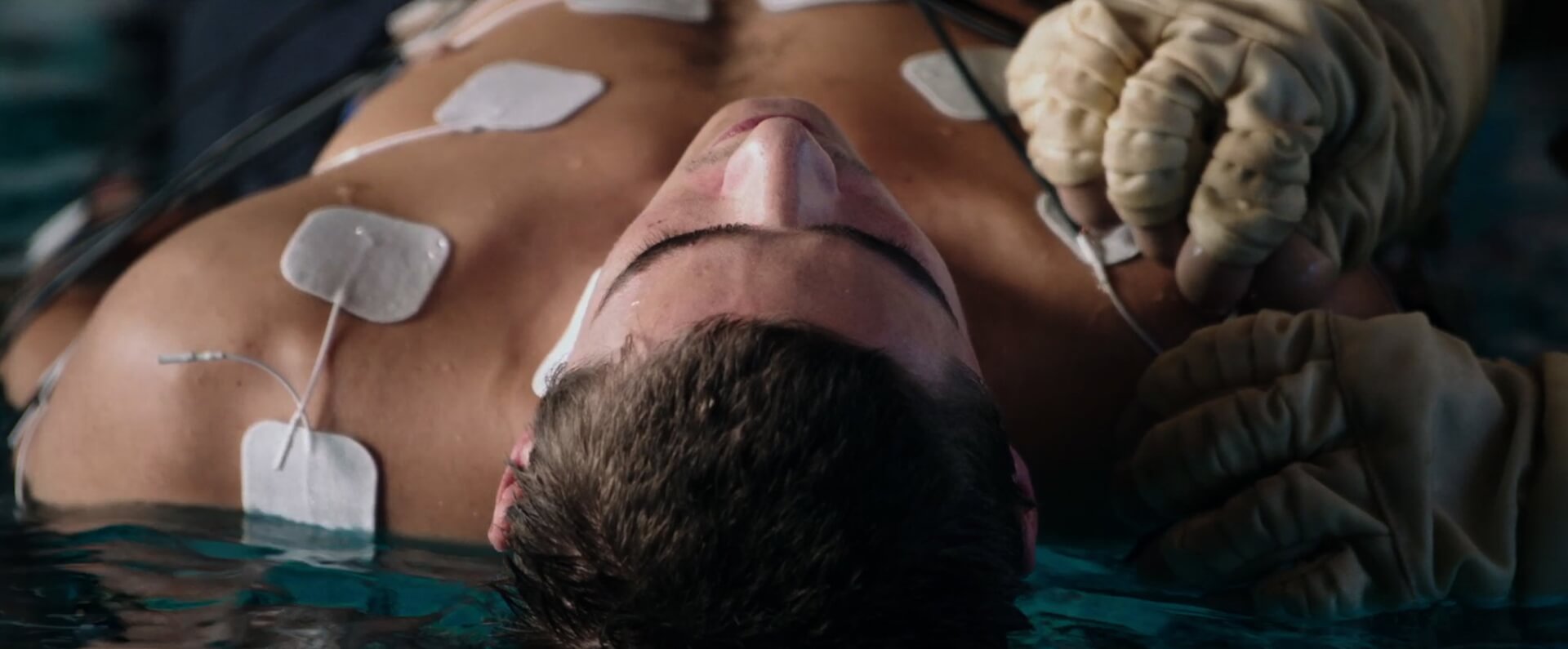
Watching The Signal is a bit like reading some strange, exotic sci-fi comic found in the ’90s memorabilia drawer. Everything looks great and has a charmingly quirky vibe without being kitschy. Every now and then, we see or feel that something doesn’t fit into the whole. A cassette recorder in the era of digitization and global Internet? A car straight from the times when the main characters’ grandparents could traverse the location rather than themselves? Constant changes in directions, geographical errors, and a mix of different places from the map of the United States? If Eubank’s intention was to put the viewer in a similar state of confusion as his characters experience, the trick worked. Moreover, these oddities not only work in favor of the plot but also help create a great atmosphere and give the whole a “oldschool” vibe.
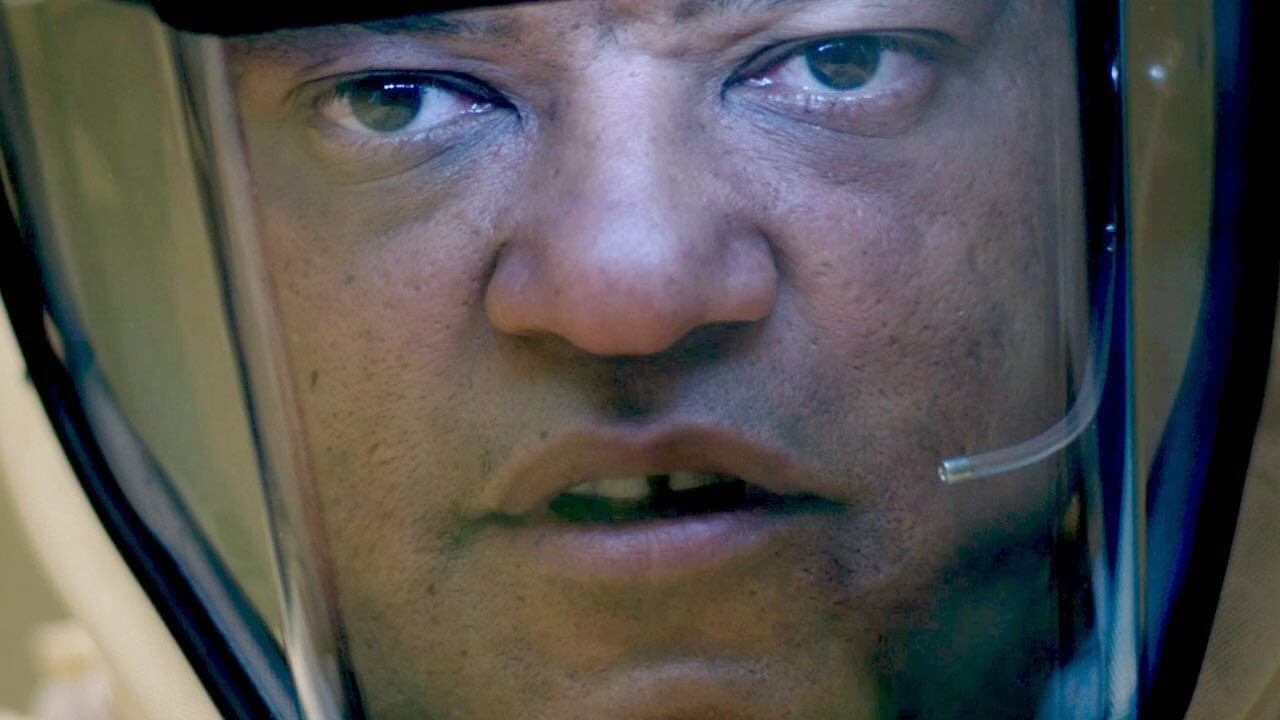
What allows for genuine admiration during the screening is the film’s visual layer. The budget was only four million dollars, and these are four million invested in the right people. Eubank and his team created a thoughtful vision of the world, consisting of the iconography of a desert landscape; stylish, raw design of a mysterious laboratory; stunning special effects, among which bizarre, mechanical limb prosthetics stand out; and a well-studied, eye-pleasing frame arrangement. The set design and CGI are top-notch and could easily compete with Hollywood blockbusters. Most importantly, the director never falls into excessive admiration for technology and doesn’t bombard the audience with effects at every turn. He saves the best for last, building up the experience. Truly, there’s something to look at here! Geometrically arranged shots bring to mind Kubrick’s best frames, but they are not mere imitations – they are used to tell different stories and evoke different emotions. Spectacular scenes of destruction and bodily mutations of the characters resemble the Japanese anime giant Akira. There’s also a whiff of The Matrix (and it’s not just about Laurence Fishburne’s performance), but again – it’s not about copying or even borrowing, but about a nostalgic-free tribute to the classics. It’s also not the case that The Signal is an empty gimmick calculated to excite the eye. The effects serve the story here, not the other way around. Following the three-act rule, the best is saved for last. In this way, the story of the journey of the three outsiders turns into a spectacular show combining action and technical mastery. It’s challenging to overestimate the work of specialists in computer-generated images, both in terms of ideas and their execution.
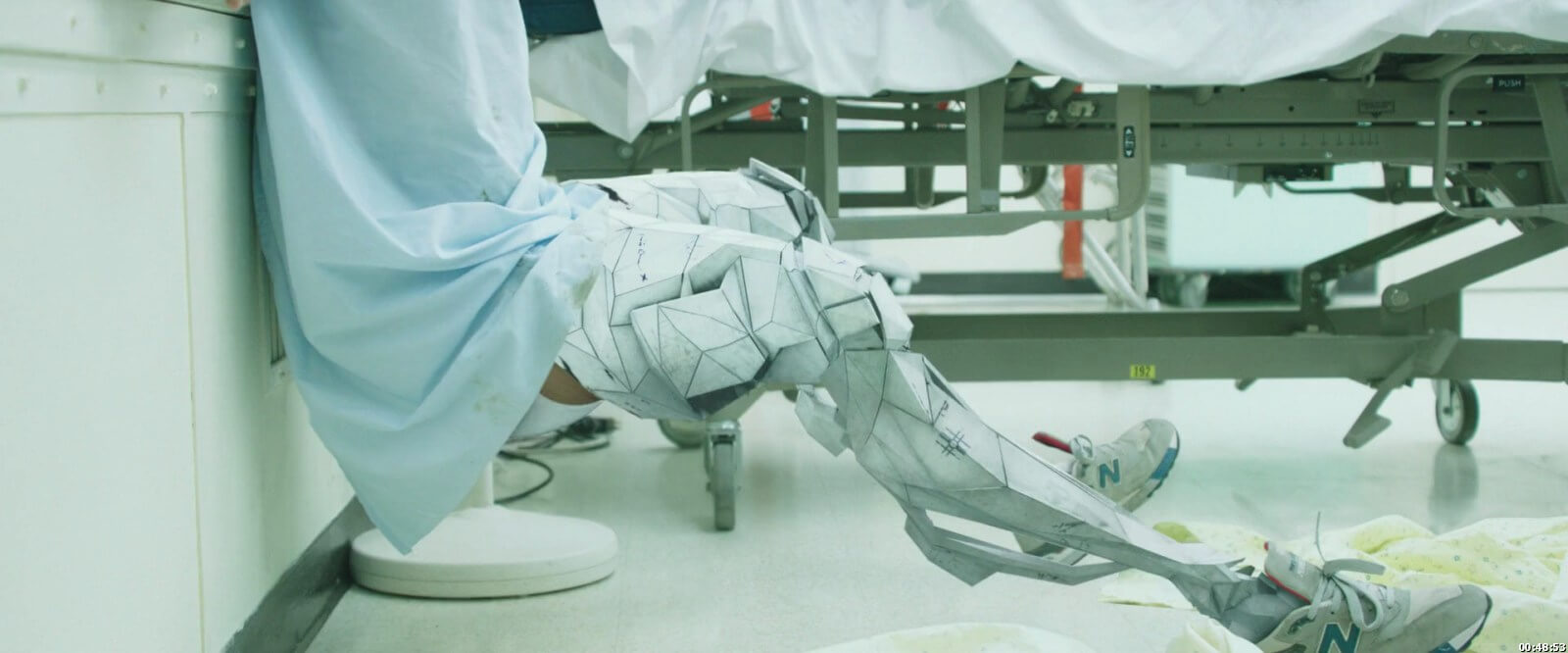
It’s also a fact that the film’s pace could be a bit faster – one could even venture to say that The Signal would work better as a shorter form, devoid of some elements that don’t really cope well in the context of the whole. However, I also understand the attempt to create a feature-length, authorial work. Especially since Eubank – the screenwriter (together with his brother, Carlyle, and co-author David Frigerio) treats the archetypal plot as a base to address several interesting issues arising from the theoretical encounter of humans with an alien civilization. It’s a pity, though, that he uses his characters only as carriers of ideas and doesn’t allow the audience to fully like them or be more concerned about them.
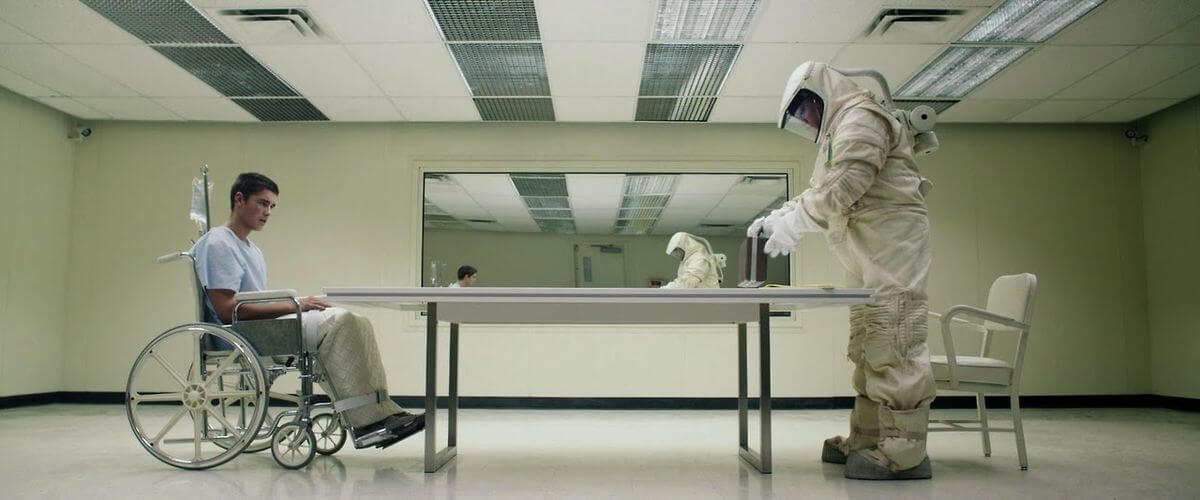
The Signal is uneven, but satisfying. I don’t know if Eubank was aware of the script’s shortcomings and tried to compensate for them with interesting ideas, or rather the other way around – he had a few great ideas in mind and added a story to them. Regardless of the intentions, it turned out really intriguing, although I suspect not for everyone. Without any interest in the genre, it’s better not to approach it at all. But sci-fi fans and independent cinema enthusiasts will find much to appreciate here and might want more.

